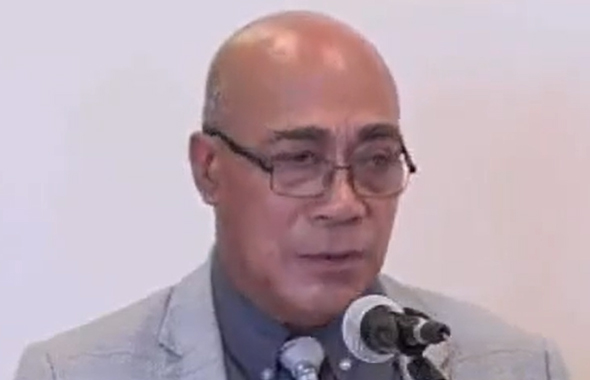By rnz.co.nz
The government and councils will offer a buyout option to property owners whose land is too risky to rebuild on, and co-fund protection works for those who need it.

Cyclone Recovery Minister Grant Robertson and Associate Finance Minister Michael Wood announced the move on Thursday afternoon, saying they expected details to be worked through with councils and finalised this month.
Wood said initial indications showed about 700 properties would not be built on again, with up to 10,000 needing additional protection works before homes could be rebuilt.
Indicative estimates were that around 400 of those homes were in Auckland, he said.
“That particularly pertains to homes which are in the flood-affected areas.”
“We have a number of homes in Auckland who [sic] are facing instability issues.”
Hawke’s Bay councils were revealing final decisions on which properties are in the low-risk category from today, and providing estimates of the numbers of higher-risk properties.
Robertson said his understanding was Auckland Council expected to talk to property owners from 12 June.
Tai Rāwhiti councils had already begun contacting some high-risk property owners, Wood said, and would finalise the remainder over coming weeks. Properties in other affected regions like Northland and Wairarapa.
Hundreds of homeowners facing the prospect of rebuilding after Cyclone Gabrielle and the Auckland floods damaged or ruined their homes have been eager to get details from the government on whether they can rebuild on their property.
Robertson at the start of May announced a three-category system would be applied to properties. They include Category 1 “low-risk” which means homeowners can rebuild on the same site; Category 2 “managed risk” where flood management work will need to be done first; and Category 3 “high-risk” areas considered unsafe to rebuild in at all.
This is different to the red- and yellow-sticker system, which only warns whether a property is currently safe to enter or stay in.
Provisional categorisation of managed and high-risk areas suggested more than 2500 Hawke’s Bay properties would need work before rebuilding could begin, and more than 200 would never be built on again – nearly all of them in Hastings.
These would need to be finalised before works could begin.
Robertson on Thursday said the government would work with councils to help build flood protection and other resilience measures to protect the homes designated under Category 2.
“The initial support for this is already in place with $100 million initial funding announced in Budget 2023,” he said. “We cannot meet all the costs, particularly knowing that we will see more extreme weather events like this.
He said the government needed to strike a careful balance between supporting communities and forcing taxpayers to bear the costs.
“But the affected communities can be assured we are committed to making this approach work.”
Those with Category 3 properties would be offered a voluntary buyout by councils, with the costs shared between councils and government. He said decisions on the split of costs and how uninsured properties would be handled would be made in coming weeks.
Robertson said the response had been locally led, with the cyclone taskforce’s risk assessments completed.
“From here the councils will lead engagement with their affected property-owners,” he said. “Today’s announcement will help councils get the right solution in the right place and avoid significant financial hardship for property owners.”
In a statement, Hawke’s Bay mayors Sandra Hazlehurst, Alex Walker, Kirsten Wise and Craig Little and Hawke’s Bay Regional Council chair Hinewai Ormsby said they were pleased with the announcement.
They said it was just the start of the process for some of the most affected areas, but would allow those in low-risk Category 1 areas to “move on with their recovery with confidence, and to move forward with their lives”.
“The reality is that Categories 2 and 3 cover a wide spectrum of scenarios and circumstances, including properties that weren’t damaged because of the cyclone, and we want to work closely with our impacted residents,” they said.
However, they again urged more government funding to support the rebuild.
“All of this important mahi will only be able to progress with strong government support and, although the funding confirmed through Budget 2023 is a step in the right direction, as weve stated before this is significantly less than we need as a region if we’re going to build greater resilience.”
Robertson said the government was also working with commercial sectors and property owners on providing additional support.
A separate process was under way to handle whenua Māori by the Cyclone Response Unit, Te Arawhiti and local councils.
“There are significant complexities and issues with multiple ownership of land,” Robertson said, noting that significant sites like marae and urupa had been affected in some areas.
“We want to work through that in a careful and considered way.”
Robertson had warned in March that although the government expected to have data from a taskforce and insurance companies within weeks, it needed to be collated and compared with council risk assessments for the government to start making decisions from mid-April.
He said at the time the government wanted to make its decisions faster than the four months National took after the Canterbury earthquakes, but also wanted to provide certainty rather than making fast decisions that may need to be re-assessed later.
Decisions on higher-risk properties will however take longer – aiming to be done “as soon as possible” – and Robertson this week said the categories would only be a starting point anyway: Discussions with individual homeowners would be “ongoing”.
Robertson said he wanted to acknowledge how difficult the past few months had been for those affected by the extreme weather events.
“Those families who have been impacted have been carrying with them the trauma of what happened on those days … I want to acknowledge that this has been a tough period of time for them.”
He said both central and local goverment “continues to be with you and stay with you throughout this process”.
“Today is a big day, but there are more big days to come.”








